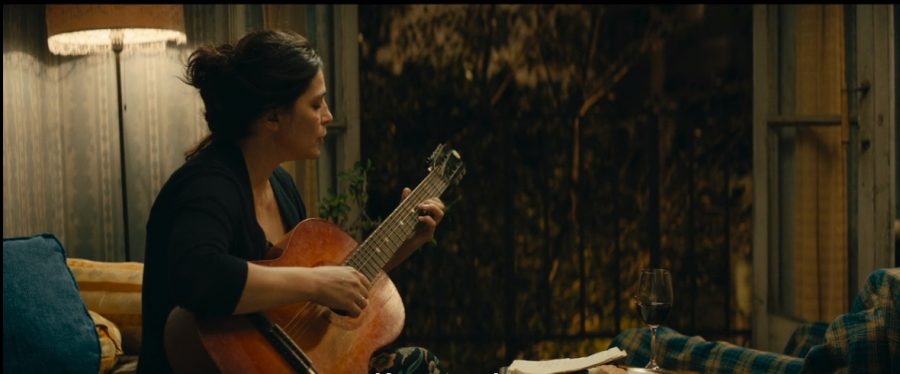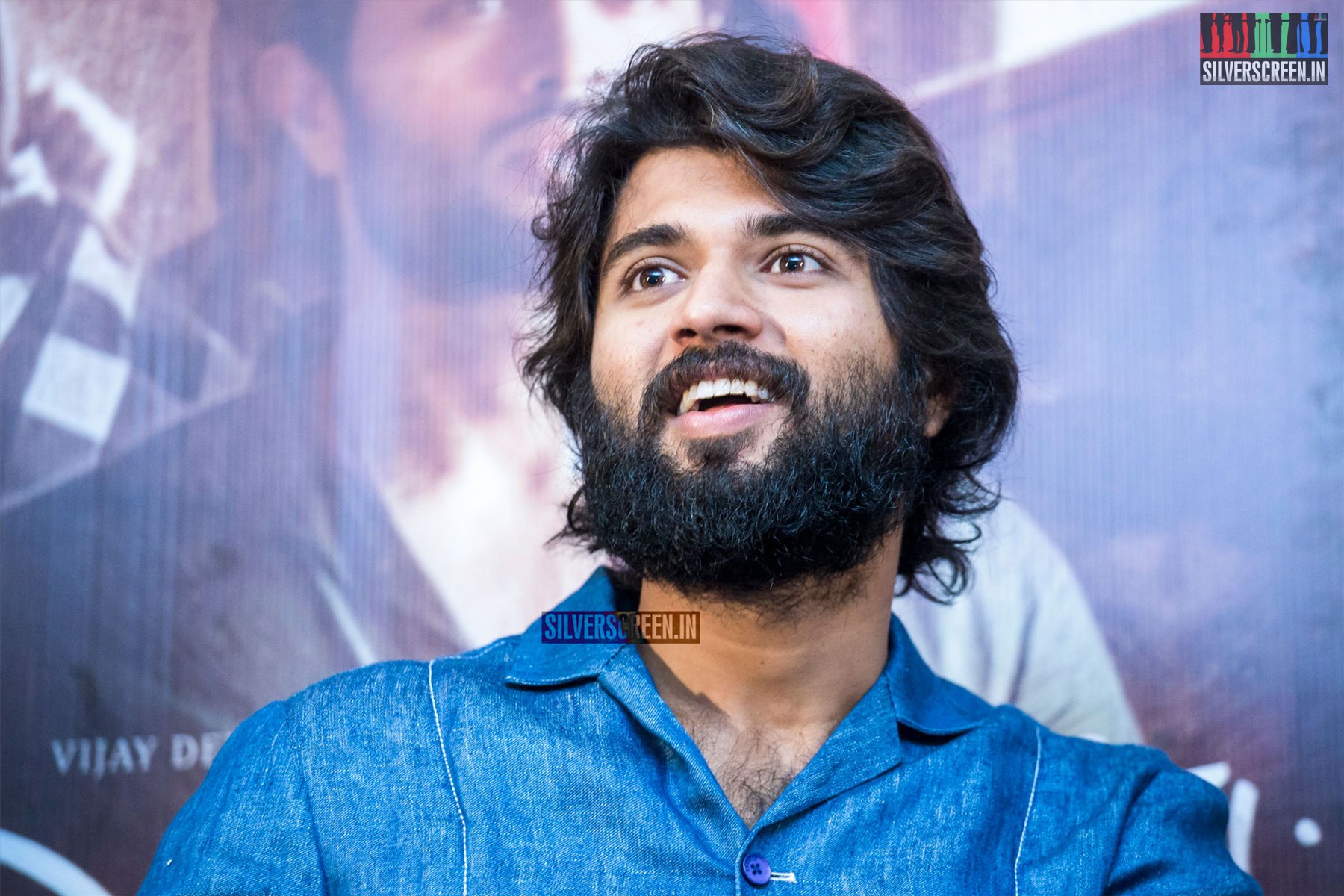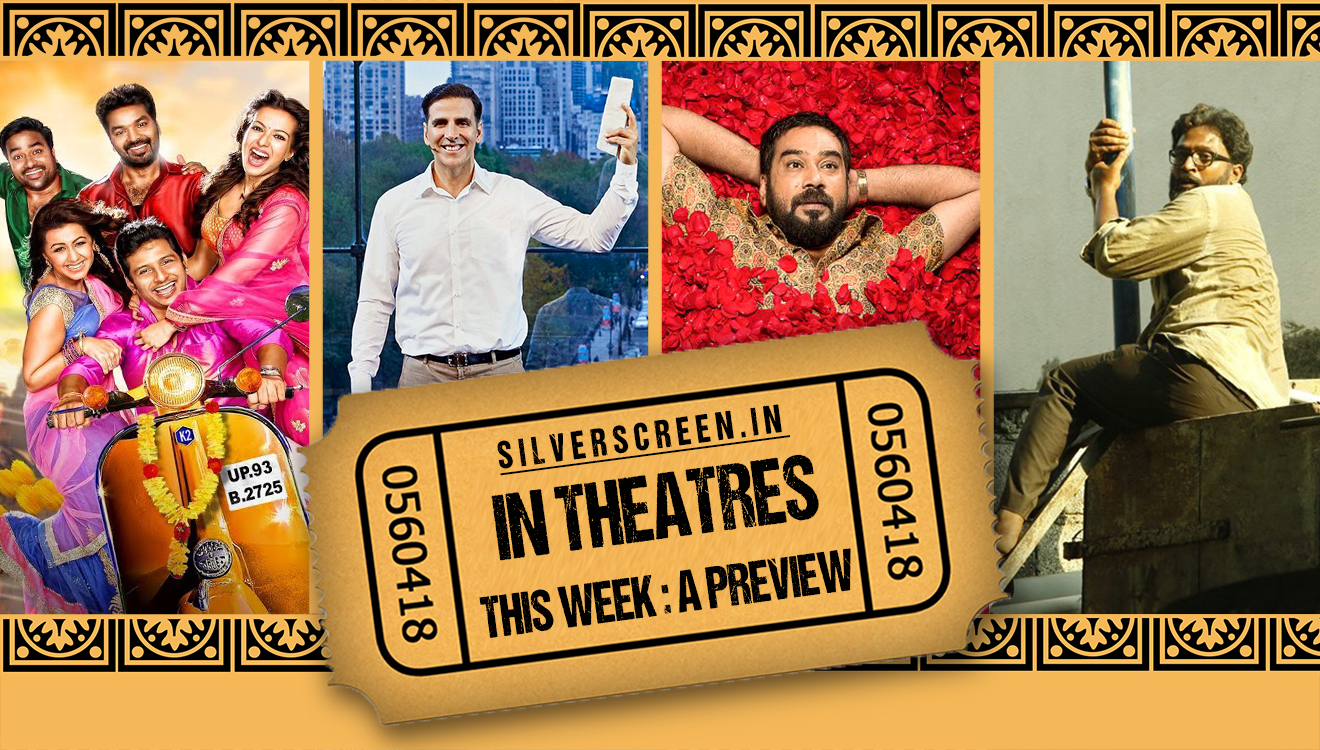A year after its world premiere at the Berlin International Film Festival in February 2017, Georgian director Nana Ekvtimishvili’s My Happy Family may not have attained the kind of fame that some films have, but it has had its fair share of recognition, as a tale featuring a 50-something woman who chooses to break away from her family
Nana Ekvtimishvili’s search engine yield is modest; she doesn’t yet belong to the league of directors whose names trigger a hundred thousand entries – there’s the cursory Wikipedia entry, half a dozen interviews, and a couple of articles about her movies. Nothing else; even losing oneself in the long, winding labyrinths of the search engine produces only a few features that date back to 2013 – the year when In Bloom – a coming-of-age film about two teenage girls set against the backdrop of the Georgian Civil War – had released. Raw, poignant, and cutting, it traces the journey of Ekha and Natia who navigate a violent, war-torn and patriarchal society in independent Georgia, and at the same time, deal with the angst of young adulthood.
It was Georgia’s Oscar submission for 2014.
Photographs of Nana Ekvtimishvili show a curly-haired woman in her prime; along with husband and co-director Simon Gross, she speaks with a distinct Georgian accent in an interview. Having left Tbilisi by the end of 90s to pursue dramaturgy at a university in Germany where she met Simon, Nana, during an interview at the 19th Sarajevo Film Festival, describes the process of making In Bloom as one that involved “collecting emotions” from the land she grew up in. Nana recalls that during the making of the film, she ran into a classmate from school who was abducted and married at the age of 14; that poignant little memory is an integral part of In Bloom.
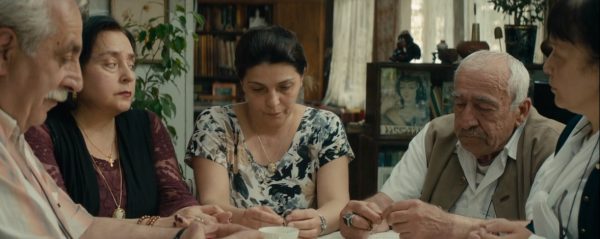
mhf1
Earlier, in a telling scene, Manana is chided by her mother for eating cake before dinner, and a while after, she tiptoes into the room where her daughter and son-in-law sleep, to get her clothes from the wardrobe. The frames are constructed thoughtfully, the shots long, never in a hurry, just content to capture the minutiae of everyday life. Their home looks suitably lived in, chipped window panes and fraying wallpaper, exuding a lovely unpolished charm as an apartment housing a multi-generational family would. In one scene, Manana is shown buying grocery; she mulls over a few tomatoes, stashes a bundle of dill, only to discard them a few moments later. The scene, at first, doesn’t seem to be of any consequence, but it transforms into a delightful little metaphor as the film flows – Manana arrives at her family home soon after, packs her bags and leaves amidst loud protests. She is placid throughout; rarely do we see her lose composure even when her mother berates her for leaving a husband who’s not violent. What’s wrong with him, she bellows, he doesn’t hit you like the other husbands.
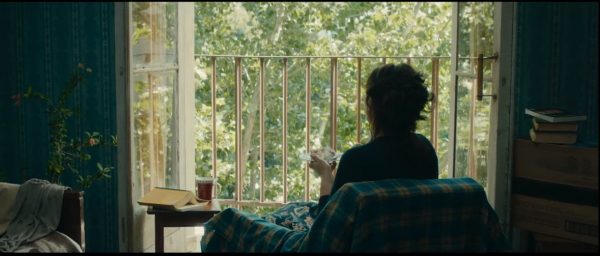 The film seldom lets Manana talk aloud, choosing instead to linger on the sights and sounds to build the narrative. During an instance, after a particularly noisy confrontation with her extended family who pour in to ‘reunite’ her with her husband, she arrives in her apartment, plays some music – lovely cello notes – lets in some breeze and fixes herself a piece of cake. It’s pleasant this solitude, and for a few lovely moments, the camera drinks in the scene; it’s just Manana, with her back to the lens and the soothing gush of breeze.
The film seldom lets Manana talk aloud, choosing instead to linger on the sights and sounds to build the narrative. During an instance, after a particularly noisy confrontation with her extended family who pour in to ‘reunite’ her with her husband, she arrives in her apartment, plays some music – lovely cello notes – lets in some breeze and fixes herself a piece of cake. It’s pleasant this solitude, and for a few lovely moments, the camera drinks in the scene; it’s just Manana, with her back to the lens and the soothing gush of breeze.
The frames in the film are accentuated by sounds, sometimes capturing the general cacophony of a full household, and during others, revelling in the silence punctuated only by the distant chirping of birds, or gentle everyday sounds that inhabit the domestic sphere. When Manana, during the course of the film, stumbles upon her husband’s affair, she strums a little melody surrounded by friends; the notes are thoughtful, even reflective, and not entirely poignant.
Recommended
My Happy Family also places the lives of two women who are intimate as only a mother and daughter can be, but with vastly different mindscapes. Lamara, Manana’s mother, is baffled by her daughter’s decision; she is someone who dutifully, meticulously prepares a menu for the table – for unannounced guests – despairs at her husband’s indifference, berates her grandson for his ill manners, but wipes down after him all the same. At times, despite Lamara’s strict, almost stifling environment she chooses to be in, and her rigid adherence to obsolete social constructs, the heart goes out to her. For here’s a woman without agency, someone who, unlike her daughter who can fly the cage at will, is woefully chained to her beliefs. She may not measure up to the modern society, or hold ideals that would endear her to it, but her life, if anything, is a poignant reminder of the number of women who know nothing but a starkly gender-normative world.
My Happy Family is available for viewing on Netflix.
*****
